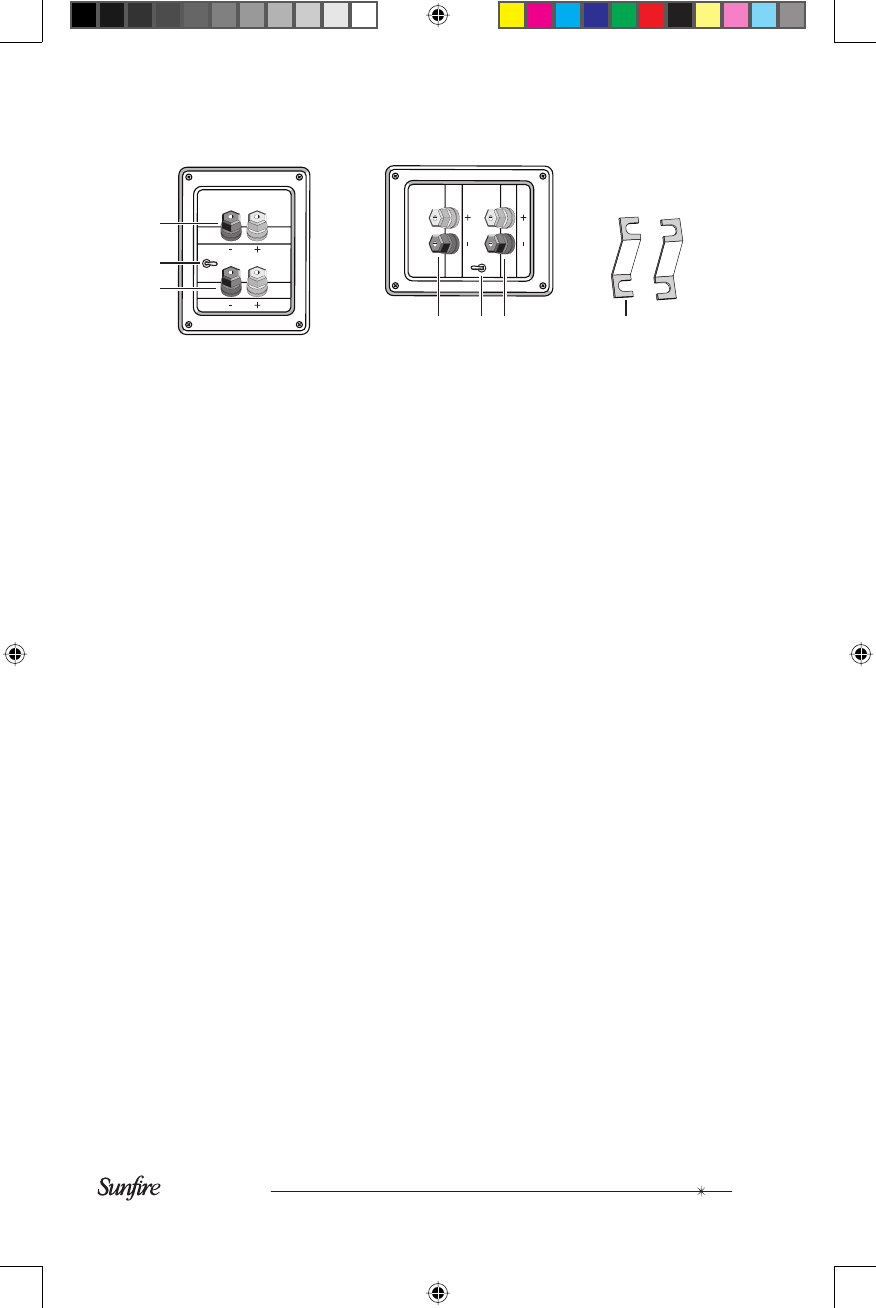
User's Manual
5
1. Boundary Compensation
Switch
This switch compensates for bass and
mid-bass loading that occurs when a
loudspeaker is wall-mounted, com-
pared to when it is away from a wall.
Switch it to the left if your loudspeaker
is close to a wall or other large objects
that may cause refl ections. Switch it to
the right if the loudspeaker is placed
more out into the room, such as when
on a stand. Experiment with the switch
to fi nd the position that suits your
preference.
2. Ribbon Binding Posts
3. Woofer Binding Posts
The loudspeakers have two sets of
bind ing posts that are joined with
bridge clips (4) for normal operation.
With the bridge clips in place, you can
connect your amplifi er outputs to either
positive/negative pair of binding posts.
Always use high quality connections
and speaker wires, and make sure
there are no loose fi ttings or stray wire
strands. They will accept bare wire,
pins, banana plugs and spade connec-
tions.
Connect the positive speaker-level
output of your power amplifi er or
receiver to a positive (red) input of the
loudspeaker. Connect the negative
speaker-level output of your power am-
plifi er or receiver to a negative (black)
input of the loudspeaker.
Make sure that the positive and nega-
tive connections do not touch, or this
may damage your power amplifi er.
Tighten all four binding posts to make
sure the bridge clips are making a good
contact.
4. Bridge Clips
From the factory, the two positive bind-
ing posts are electrically joined together
with a bridge clip, as are the two nega-
tive posts. Leave the clips in place,
unless you are considering biwiring or
biamping.
If the bridge clips are removed, the
loudspeaker can be biwired or
biamped. The ribbon posts (2) are then
used for connection of speaker-level
power to the ribbon section. The woofer
posts (3) are for connection of speaker-
level power to the woofer section. (See
the next two pages for more details.)
Rear Panel Features
CRS-3 Rear Connectors CRS-3C Rear Connectors Bridge Clips
1
2
3
4123


















